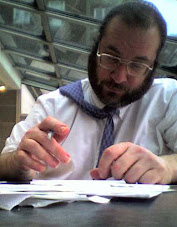In an unprecedented development, three new Jewish supervisors were certified this week by the Association for Clinical Pastoral Education (ACPE), bringing the total number of Jewish supervisors to nearly 20. As encouraging as this is, the majority of supervisors will remain Christian and many, if not most, Jewish students will train under non-Jews. It is essential, therefore, for non-Jewish supervisors to have resources and directions to help them meet the particular needs of Jewish students.
Last year -- along with my fellow ACPE supervisor, Rabbi Leah Wald -- I presented a workshop on this at the ACPE’s annual meeting. The workshop, which was extremely well received, focused on some of the issues that can cause the most unnecessary and hurtful conflict between Jewish students and their supervisors, including issues about theological differences, around eating and, especially, around how Shabbat and Jewish holidays can complicate issues of scheduling things like on-call time. While theology, for example, is generally a matter of belief in Christian contexts, for many Jews practice is our theology. Thus, the kind of theological struggles that happen when CPE students confront the disturbing theological challenges of the actual suffering and injustice patients experience may be expressed in ways non-Jewish supervisors will find surprising. Instead, of belief shifting, it might be practice that shifts. A student might, for example, become more or less Shabbat observant during a unit as he or she wrestles with the theological and spiritual challenges any good CPE program will confront them with.
To help supervisors work with issues of Jewish theology and practice, we provided two important resources:
This second document -- created by Leah, who heads the Department of Volunteer, Chaplaincy, and Language Services for Einstein Healthcare Network in Philadelphia -- constitutes a best practice not just for supervising Jewish students, but for supervising all students. In short, the guidelines recommend that the supervisor clarify with all students during the interview process what religious limitations they have with regard to on-call. Then, once the program starts, the supervisor tells the peer group about the parameters that were set during admissions process, and the students themselves together are expected to set the on-call schedule within those parameters. That is, students do not have to negotiate their right to follow the time commitments of their religious tradition. But, they do have to negotiate within the parameters to arrive at an equitable schedule with their peers.
Leah has found that this approach of both requiring negotiation, but also limiting it within some set of pre-set parameters, also serves the students’ learning. It pushes students to learn about what respecting religious diversity can mean in the concrete. She found that having to address religious differences from the outset provides opportunity for students to explore more quickly and deeply issues about how key differences about faith and practice vary between faith traditions.
In the workshop, we also talked about the key -- but sometimes difficult to find -- line between a student expressing psychological resistance and a genuine religious need. This is especially important because many of the wounding experiences Jews have had in CPE happened when a supervisor was unable to recognize genuine religious need -- like a student’s need to not work on Shabbat. Working with students’ around their resistance serves their learning, but trying to actually change their religious beliefs and practices only causes hurt and wounding.
I presented a challenging encounter between two Jewish students, one an Orthodox man and the other a non-Orthodox woman. There are practices held by some Orthodox Jews -- like a man’s refusal to shake a woman’s hand -- that some women might find offensive or insulting. I suggested an approach that would allow the Orthodox man to retain his practice without being judged for it, but that also encouraged him to engage in a dialogue with those who felt hurt. This way both students could learn from each other and about how their beliefs and practices might impact others and about the diversity of spiritual practices and beliefs they might encounter in clinical settings.
I also gave a teaching on one of my favorite pieces of Talmud regarding issues of pastoral care and about the meaning, or lack thereof of suffering, the Give me your Hand story on Brachot 5b.
I am so proud of all my colleagues -- both Jewish and non-Jewish -- who have been working hard for years to provide a welcoming and safe place for Jews and other non-Christians in CPE. I am grateful to all the people who nurtured me and I hope that the work Leah and I did will be one part of continuing to make CPE a more welcoming space for Jews. And, mazel tov, again to Rabbis Maurice Applebaum, Mollie Cantor, Yael Shmilovitz on their certification!


